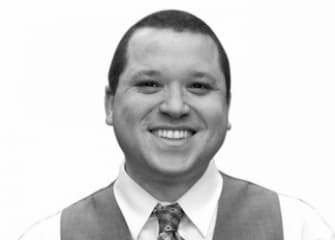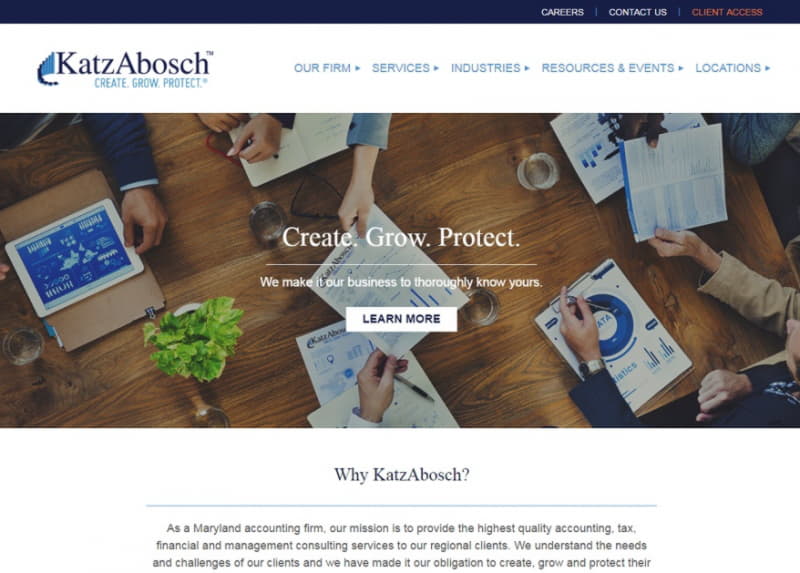
Fagan Harris
Click here for Part I & Part III
Advocating for innovation, equity, and racial justice in Baltimore
Fagan Harris is the CEO of Baltimore Corps. Founded in 2013, Baltimore Corps seeks to advance social innovation, equity, and racial justice in Baltimore by connecting talented individuals to opportunities within the social impact sector. To accomplish its mission, the organization runs fellowships, conducts placement services, and provides awards and supports to social entrepreneurs. Baltimore Corps' programs focus on development, networking, and making an impact, with its Fellows and Awardees including artists, social workers, city planners, community coordinators, and many others.
EDWIN WARFIELD: You’ve talked about the big picture—can you tell us about how you partner with people in Baltimore to accomplish your mission? Is recruitment difficult?
FAGAN HARRIS: When we got started, people would often ask us, “How the heck are you going to recruit people to come work in Baltimore City? How are you going to get all these really talented people to come and invest their life in this place?” What we learned pretty early on is that people don’t come to work for institutions. People are not coming necessarily to work for the health department; they’re coming to work for Commissioner Wynn. People do not go to work for say CUPs Coffeehouse; they’re there to work for Holly Gray, the social entrepreneur who conceived it. And so pretty early on we realized that people want to work for visionary cause leaders—they want to work for the individuals that are really innovating some of the best solutions to our hardest problems—and that if we put the focus on the relationship of the leader and our emerging leaders and we really built those linkages, it was in that relationship that impact was going to flow, it was in that relationship that we were going to retain these fellows into work, now and well into the future.
And so in addition to Commissioner Wynn, we work with social entrepreneurs like Holly Gray of CUPs Coffeehouse, which is a coffee house but also a workforce solution that employs young people from the neighborhood so that they can get that first job, that first rung on the ladder to opportunity. Social entrepreneurs like Sarah Hemminger, who we co-locate with here at Thread, who’s taking the lowest performing students at Baltimore City schools and really building a network of support around them—a family if you will—to see them get much better and effective outcomes. We work with social entrepreneurs like Joe Jones at the Center for Urban Family that is also doing really groundbreaking work, stabilizing the supporting families and helping them bridge to work. We’ve worked with well over a hundred visionary cause leaders at this point, who span grassroots organizations of one or two people, all the way up to some of the biggest bureaucracies in our city, and everything in between.
Baltimore Corps is very generously supported by a number of local anchors: T Rowe Price, the Strauss Foundation, the Paul Sacher Foundation, the Abell Foundation. We work with several of the national foundations also headquartered here in Baltimore, including the Casey and the Weinberg Foundation. We just last year launched an individual giving campaign, so for the first time in the history of the organization, really enlisting individuals to support and sustain the organization to help grow it over time. And so members of our board—John Cammack, Matt Gallagher—these individuals have really come together and helped us enlist the support we need to grow Baltimore Corps so that we can really lean into our promise.
We’ve been fortunate to also track a lot of national support. We have the courage of our convictions that what we do here in Baltimore really matters—not just for us, but to the country— and that what is being built here is a model for other places, and as philanthropists and individuals contemplate how they’re going to invest in the next generation of impact, whether they’re in New York or California, we make the case very clearly and unequivocally that they should be investing in Baltimore.
Q. What are some of the challenges you face?
A. We do have a lot of fierce challenges here in Baltimore and we have had a lot of fierce challenges for a very long time. This is a city that has struggled with the industrialization, it has struggled with structural racism, it has struggled with rapid systemic disinvestment—so to be clear there are just enormous challenges that we are up against, and in many ways, Baltimore is a frontline of a lot of the negative trends we’ve seen in this country over the last 40, 50 years. On the other hand, Baltimore in terms of its demography, in terms of its assets, reflects where this country’s going. Because it is a city and because we are so proximate to these challenges, there is a palpable sense across Baltimore that we can’t run from these problems; we don’t have a choice but to solve them, and we will have to do it in a way that is inclusive of everyone that is a stakeholder in those challenges, which is anyone who calls the city home. And we’re going to have to dig in and really innovate because the old way of doing it—doubling down on the systems that are set up and just run in perpetuity—is clearly not working for us. We’re having record-breaking years in terms of homicide. We’ve some pretty profound challenges in our school system, in our workforce system. And so we need to bring to bear the best thinking, the hardest work, and truly an all-hands-on-deck effort to start to turn the corner on those problems.
Baltimore Corps’ role in that is to build the team that works on those problems, and to make sure that we got the infrastructure to enlist people in the hard work of making the city more equitable, more just, and more effective for its residents. We believe deeply in that, and we believe deeply in the capacity of people to work really hard over a long period of time—with the right lens. If you’re looking at these problems with a lens of “What’s the solution that is racially equitable? What’s the solution that draws on best practice? And what’s the solution that’s putting the city’s interests first—its long-term interests first?” We think that if you have an army of people out there that work like that every day, and that they know one another and they collaborate and they support one another and they challenge one another and they hold one another accountable, that that’s what is going to take: nothing less than an army of people, really working from the inside and the outside, together, to start to make the city all that it can and should be.
Connect with Fagan on LinkedIn
Sponsored by:
Founded in 1969, KatzAbosch is one of the largest CPA and business consulting services in the Mid-Atlantic region. Our mission is to provide the highest quality accounting, tax, financial and management consulting services to our clients. We understand the needs and challenges of our clients and we have made it our obligation to create, grow and protect asset value. The experts at KatzAbosch offer a full service solution while maintaining a tradition of ethics and incorporating the latest technology and unique business practices. Excellence in an industry often begins with how those closest to the company—its clients and employees—feel about it. For these individuals, KatzAbosch is a place where people and businesses excel and prosper. Our advisors can meet all of your service needs including; Audit & Accounting, Business Valuation & Litigation Support, Consulting, Estate Planning & Administration, Financial Institution Services, Forensic Accounting & Fraud Examinations, State and Local Tax (SALT), Taxes & Planning.


Edwin Warfield, CEO of citybizlist, conducts the CEO Interviews.
If you're interested in reaching CEOs, please contact edwin.warfield@citybuzz.co
Connect on LinkedIn




































